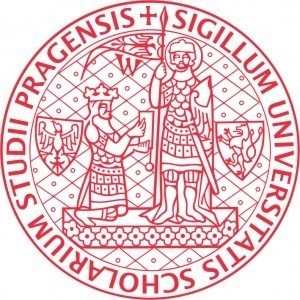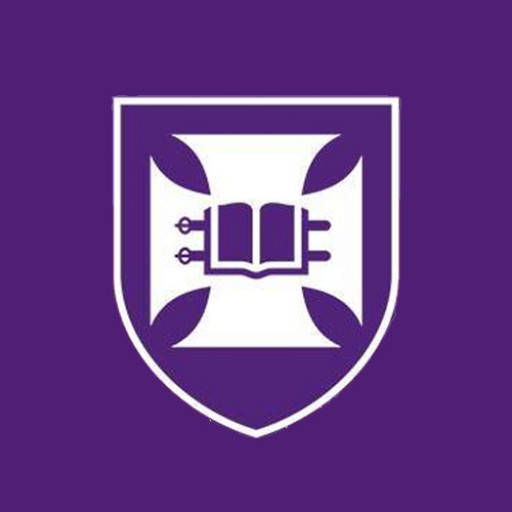Photos of university / #_charles.university_
The Pharmacy program at Charles University offers a comprehensive education in pharmaceutical sciences, preparing students for a professional career in pharmacy, healthcare, and related fields. The program is designed to equip students with a solid foundation in the sciences, including chemistry, biology, pharmacology, and medicine, combined with practical skills necessary for safe and effective medication management. Throughout their studies, students gain a thorough understanding of drug development, dispensing, and optimal use of medicinal products, ensuring they are well-prepared to serve in community pharmacies, hospitals, pharmaceutical companies, and regulatory agencies. The curriculum integrates theoretical knowledge with practical training, including internships and lab work, to develop competencies in patient communication, medication therapy management, and pharmaceutical research. Special emphasis is placed on ethical considerations, health promotion, and patient safety to meet the high standards of healthcare delivery. The university’s modern laboratories and teaching facilities provide students with hands-on experience in pharmaceutical analysis, formulation, and quality control. Interdisciplinary collaboration with medical, chemical, and biological departments enhances the educational experience and broadens professional perspectives. Graduates of the Pharmacy program at Charles University are recognized for their expertise and are well-prepared to pursue careers in clinical pharmacy, pharmaceutical research and development, quality assurance, or continue to postgraduate studies. The program adheres to European standards for pharmacy education, ensuring graduates are eligible for licensure and practice across the European Union. With a focus on innovation, ethical practice, and lifelong learning, the Pharmacy program prepares students to meet the evolving challenges of healthcare and contribute meaningfully to public health.
|
Advanced Organic Chemistry |
3 |
Optional |
|
Analytical Chemistry |
2 |
Compulsory |
|
Applied Statistics |
2 |
Compulsory |
|
Basics of Health Care |
3 |
Optional |
|
Basics of Pharmacy Practice |
1 |
Compulsory |
|
Bioorganic Chemistry |
1 |
Compulsory |
|
Biophysics |
1 |
Compulsory |
|
Biostatistics |
3 |
Electives |
|
Biotechnology |
3 |
Electives |
|
Cell Biology |
1 |
Compulsory |
|
Chemical Laboratory Technique |
2 |
Compulsory |
|
Clinical Pharmacy |
4 |
Compulsory |
|
Clinical Pharmacy - Risk Management in Pharmacotherapy |
4 |
Electives |
|
Communication Skills for Pharmacists |
4 |
Compulsory |
|
Constitution of Organic Compounds |
1 |
Optional |
|
Cosmetology for Pharmacists |
4 |
Electives |
|
Current Trends in the Development of Chemical Drugs |
3 |
Optional |
|
Czech Language for Foreign Students |
1 |
Optional |
|
Czech Language for Foreign Students (1) |
2 |
Compulsory |
|
Czech Language for Foreign students (2) |
2 |
Optional |
|
Development of Pharmaceutical Products |
4 |
Electives |
|
Diploma Thesis I |
4 |
Compulsory |
|
Diploma Thesis II |
5 |
Compulsory |
|
Economics and Management of Pharmaceutical Practice |
3 |
Compulsory |
|
English Language for Pharmacists |
1 |
Optional |
|
Ethics in Health Service |
1 |
Compulsory |
|
Excercises in Organic Chemistry |
1 |
Optional |
|
Exercises In General Chemistry |
1 |
Optional |
|
Extemporaneous Preparation in Hospital Pharmacy |
4 |
Electives |
|
Extra–Apothecary Practice |
2 |
Compulsory |
|
First Aid |
1 |
Compulsory |
|
Gene Therapy and Biological Drugs |
4 |
Electives |
|
General And Inorganic Chemistry |
1 |
Compulsory |
|
General Biochemistry |
2 |
Compulsory |
|
Genetics |
1 |
Compulsory |
|
Health Care Psychology |
2 |
Compulsory |
|
History and Organization of Pharmacy |
1 |
Compulsory |
|
Human Morphology and Physiology |
2 |
Compulsory |
|
Immunology |
2 |
Compulsory |
|
Immunopharmacology |
3 |
Electives |
|
Industrial Production of Pharmaceutical Preparations I |
4 |
Electives |
|
Industrial Production of Pharmaceutical Preparations II |
4 |
Electives |
|
Instrumental Methods |
2 |
Compulsory |
|
Introduction to Integrative Medicine |
4 |
Electives |
|
Latin Language for Pharmacists |
1 |
Compulsory |
|
Mathematics |
1 |
Compulsory |
|
Medical Devices |
3 |
Compulsory |
|
Medicinal Plant Production |
3 |
Electives |
|
Microbiology |
1 |
Compulsory |
|
Molecular Biology |
3 |
Compulsory |
|
Molecular Biology |
2 |
Compulsory |
|
Monitoring of Environment |
3 |
Optional |
|
Organic Chemistry I |
1 |
Compulsory |
|
Organic Chemistry II |
1 |
Compulsory |
|
Pathological Biochemistry |
2 |
Compulsory |
|
Pathological Biochemistry |
3 |
Electives |
|
Pathological Physiology for Pharmacists |
2 |
Compulsory |
|
Pharmaceutical Analysis I |
3 |
Compulsory |
|
Pharmaceutical Analysis I |
2 |
Compulsory |
|
Pharmaceutical Analysis II |
4 |
Compulsory |
|
Pharmaceutical Botany |
1 |
Compulsory |
|
Pharmaceutical Care |
4 |
Compulsory |
|
Pharmaceutical Chemistry |
3 |
Compulsory |
|
Pharmaceutical Technology |
4 |
Compulsory |
|
Pharmacoeconomics and Health Technology Assessment |
4 |
Electives |
|
Pharmacoepidemiology and Drug Safety |
4 |
Optional |
|
Pharmacognosy I |
2 |
Compulsory |
|
Pharmacognosy II |
3 |
Compulsory |
|
Pharmacology I |
3 |
Compulsory |
|
Pharmacology II |
4 |
Compulsory |
|
Pharmacy Practice I |
4 |
Compulsory |
|
Pharmacy Practice II |
5 |
Compulsory |
|
Physical Chemistry |
1 |
Compulsory |
|
Physical Training and Sports I |
1 |
Optional |
|
Physical Training and Sports II |
2 |
Optional |
|
Physical Training and Sports III |
3 |
Optional |
|
Phytochemical Methods |
3 |
Optional |
|
Phytotherapy |
4 |
Electives |
|
Principles of Dosimetry and Radiation Protection |
1 |
Compulsory |
|
Principles of the Chinese Medicine |
3 |
Optional |
|
Professional Drug Information |
3 |
Compulsory |
|
Propaedeutical Apothecary Practice |
1 |
Compulsory |
|
Radiopharmacy |
4 |
Electives |
|
Research Project I |
3 |
Optional |
|
Research Project II |
4 |
Electives |
|
Selected Methods of Laboratory Technique |
2 |
Optional |
|
Six-Month Traineeship In The Pharmacy |
5 |
Compulsory |
|
Social Pharmacy |
3 |
Compulsory |
|
Special Methods of Instrumental Analysis |
3 |
Optional |
|
Summer Sports Course |
1 |
Optional |
|
Technology of Homoeopathic Preparations |
4 |
Optional |
|
Technology of Natural Drugs |
3 |
Electives |
|
Technology of Synthetic Drugs |
3 |
Electives |
|
Therapeutic Drug Monitoring |
4 |
Electives |
|
Toxicology |
3 |
Compulsory |
|
Veterinary Drugs |
4 |
Compulsory |
|
Winter Sports Course |
3 |
Optional |
|
Xenobiochemistry |
3 |
Optional |
- Secondary school certificates (study reports from each study year, list of subjects with number of lessons, leaving certificate or school graduation certificate).
- These certificates can be officially validated by either Czech Embassy or Ministry of Education of the country you studied high school.
- Do not provide originals but copies officially verified by a solicitor, barrister or notary – verification by school principals is not acceptable!
- Two photographs (passport size)
- Certificate of medical fitness
- English certificate TOEFL 50-70 or IELTS 5.5 – 5.0. or equivalent.
- All documents should be presented in an authenticated English version.
Potential student will be contacted for short entrance interview via skype after 30th of June.
The Faculty of Pharmacy will consider the application afterwards.
Financing of the Pharmacy program at Charles University is primarily based on a combination of public funding, tuition fees, and additional financial support options. As an established institution, Charles University receives substantial governmental support, which helps to subsidize the cost of education for both Czech and international students. The tuition fees for the Pharmacy program are set annually and vary depending on the student's nationality; EU students benefit from lower fees compared to non-EU students. For EU students, the tuition fee is typically below the level of international programs, reflecting the Czech Republic’s commitment to accessible higher education within the European Union framework. Non-EU students are generally required to pay higher tuition fees, which contribute significantly towards the costs of providing high-quality education, modern laboratory facilities, and research activities.
Students also have access to various financial support options to alleviate the cost of studies. These include scholarships based on academic excellence, social circumstances, or research achievements, which are awarded by Charles University and relevant governmental agencies. Erasmus+ programs enable students to participate in exchange programs within Europe, often with financial grants to cover travel and living expenses. Moreover, students may apply for state-funded or private student loans where available, though these options depend on individual circumstances and eligibility criteria.
In addition to government and scholarship funding, some students finance their studies through part-time work. The university's location in Prague provides numerous opportunities for part-time employment in related healthcare sectors, research institutions, or university services. The university also offers financial counseling and guidance services to help students navigate available funding options and manage their finances effectively throughout their studies.
Overall, the financing of the Pharmacy program at Charles University combines institutional support, targeted scholarships, European funding schemes, and personal resources, enabling students from diverse backgrounds to pursue their education in pharmacy. The university is committed to ensuring that financial barriers are minimized, promoting equal access to high-quality pharmaceutical education and training.
Pharmacy at Charles University is a comprehensive undergraduate program designed to prepare students for a professional career in pharmaceutical sciences and pharmacy practice. The program offers a blend of theoretical knowledge and practical skills, emphasizing the scientific principles underlying medication development, preparation, and dispensation. Students gain a solid foundation in chemistry, biology, pharmacology, and other related disciplines, which are essential for understanding drug actions and interactions. The curriculum includes coursework in medicinal chemistry, pharmacognosy, pharmacology, pharmacy practice, and pharmaceutical technology, ensuring graduates are well-equipped to work in various areas such as community pharmacy, hospital pharmacy, pharmaceutical manufacturing, and research.
The program is structured to develop critical thinking, problem-solving abilities, and ethical standards necessary for pharmaceutical professionals. Students engage in laboratory work, clinical simulations, and internships to acquire hands-on experience, which is integral to their education. The program also emphasizes the importance of patient-centered care, communication skills, and pharmaceutical law and ethics, reflecting current trends in healthcare and pharmacy practice.
Graduates of the Pharmacy program at Charles University are qualified to register as pharmacists and pursue further specialization or research careers. The university collaborates with hospitals, pharmacies, and pharmaceutical companies, providing students with opportunities for practical training and internships within the Czech Republic and internationally. The program is accredited and aligned with European standards, ensuring that graduates are recognized and eligible for practice across the European Union.
Overall, the Pharmacy program at Charles University aims to produce competent, ethical, and innovative professionals who contribute positively to healthcare and pharmaceutical sciences. With a focus on scientific excellence and practical training, the program prepares students to face the evolving challenges of modern pharmacy and to serve the health needs of the community effectively.









